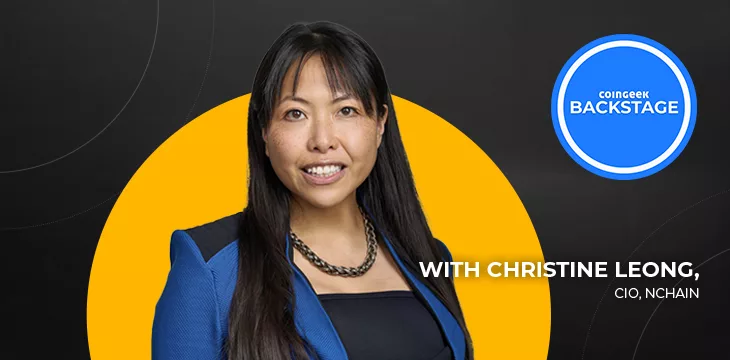|
Getting your Trinity Audio player ready...
|
“People often talk about Web3, but they don’t talk about what it needs to become a reality,” says Christine Leong, Chief Information Officer at nChain. In an interview with CoinGeek Backstage, she discussed digital identity and digital assets’ critical role in enabling Web 3.0.
Leong was at the Global CIO Institute at Oxford, where she delivered a keynote address on Web 3.0. This iteration of the internet is full of new opportunities as users get to own and monetize data. However, we can only exploit these opportunities with digital identities, she told the audience.
“Digital assets and digital identities are the key components that enable the future of Web3,” she told CoinGeek Backstage reporter Becky Liggero.
“The future of activities is purely digital. To trade digitally, you must verify who you say you are. You need privacy and trust, and it’s only [enabled] by having better identities, enabled by emerging technologies,” the nChain CIO added.
The need for transparently verifiable digital identity has increased in recent years as the digital era sets in. Various countries and companies have launched digital ID platforms, with data breaches and a lack of transparency among the key challenges. The solution is a public blockchain that scales unbounded, eliminating the need for physical identification.
Leong added that digital IDs go beyond just proving your identity. They should include your credentials, medical records, and other data that “makes you, you.”
Governments are among the biggest targets for digital ID systems. While they are traditionally slow in adopting new tech, they have the most prominent role in promoting digital identity, including creating systems that support them and implementing enabling regulations.
Governments must understand “the processes they need to build and the use cases. Digital identity is a public good.” Stakeholders must work together to realize this dream, “and only governments can facilitate that,” Leong added.
Watch: Web3 will change our lives, nChain CIO Christine Leong explains how

 02-15-2026
02-15-2026 




